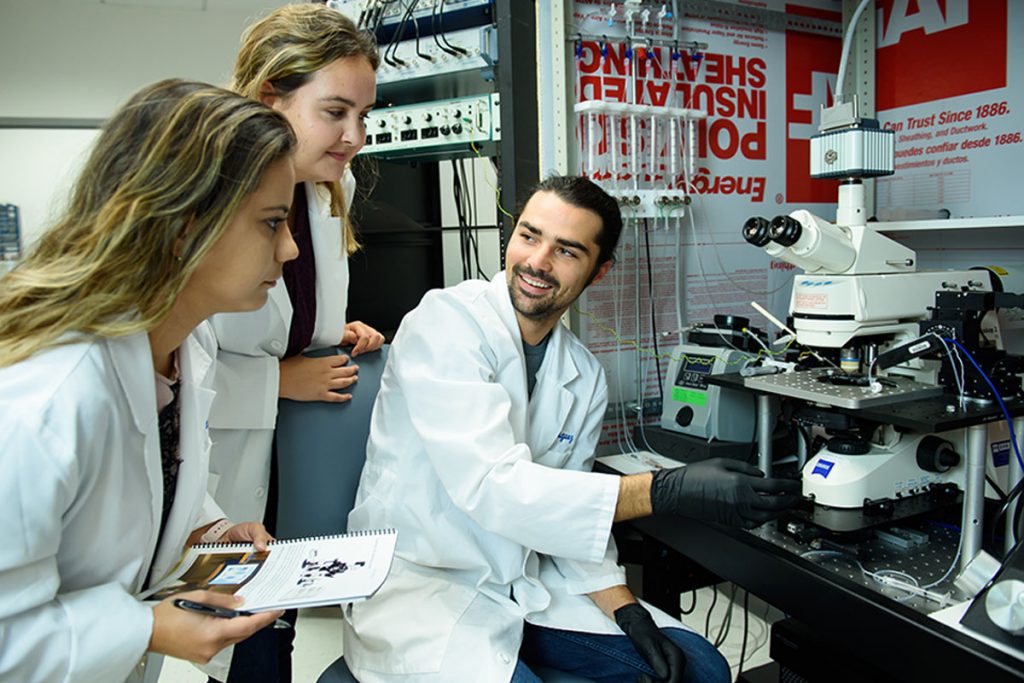
Florida Atlantic University’s Stiles-Nicholson Brain Institute and Charles E. Schmidt College of Science will develop the next generation of neuroscientists in a new Neuroscience Graduate Program (NGP). The multi-campus Ph.D. program will blend a comprehensive curriculum with exceptional research opportunities, and will serve as a key element in FAU’s pursuit of groundbreaking interdisciplinary neuroscience research.
To maximize students’ exposure to the full breadth of neuroscience, the program will bring together FAU’s Charles E. Schmidt College of Science, Charles E. Schmidt College of Medicine, College of Engineering and Computer Science, College of Education, and the Harriet L. Wilkes Honors College. Affiliate faculty from Scripps Research Florida and the Max Planck Florida Institute for Neuroscience will also join as instructors.
“FAU has made a significant investment in the highest level of neuroscience education, seeing this effort as essential to the university’s effort to become a preeminent research and training institute,” said Randy Blakely, Ph.D., executive director of the FAU Stiles-Nicholson Brain Institute and director of the NGP. “Our program offers our students opportunities that will prepare them to investigate and solve some of mankind’s most complex mysteries.”

According to Blakely, Ph.D. candidates will study how sensation, emotions, and memory both rely on and dynamically alter brain cells; how success, failure, and social experiences impact the brain; and how common, yet devastating brain disorders like depression and Alzheimer’s disease can be understood and treated.
NGP students are expected to complete the program within six years, pursuing a curriculum tailored to their career interests with significant time committed to advanced research.
“The program provides our trainees with the flexibility to evaluate research projects and faculty mentors prior to making a final decision on the direction of their doctoral research journey,” said Teresa Wilcox, Ph.D., interim dean of the Charles E. Schmidt College of Science. “NGP students will identify their primary research from among the program’s three areas of research and education emphasis – cellular, molecular and biomedical neuroscience; sensorimotor, cognitive and behavioral neuroscience; and theoretical and computational neuroscience– with each area presenting the opportunity to work across disciplines that are leading advances in neurosciencetoday,” said Wilcox.
The NGP will initiate activities in January 2022 and will welcome the first cohort for the fall 2022 semester.











Facebook Comments